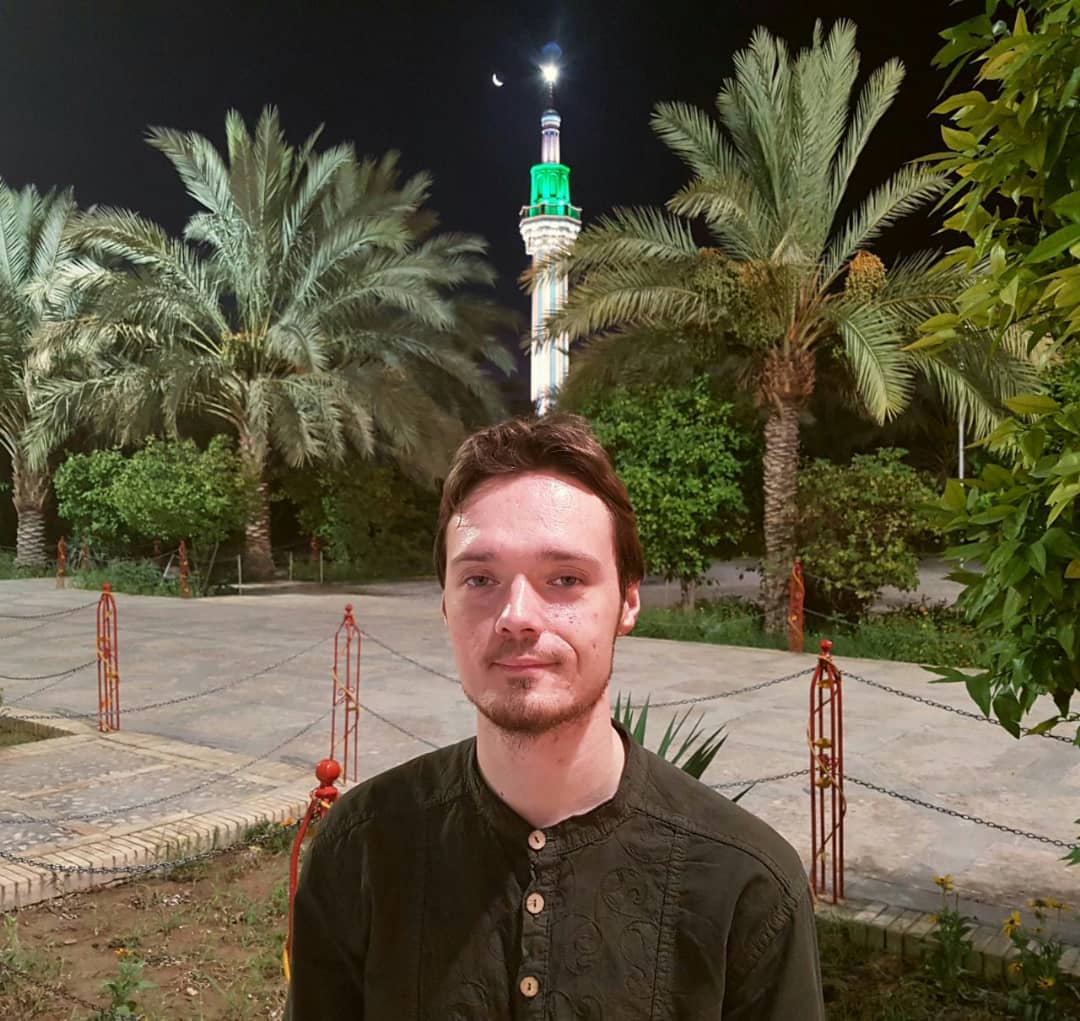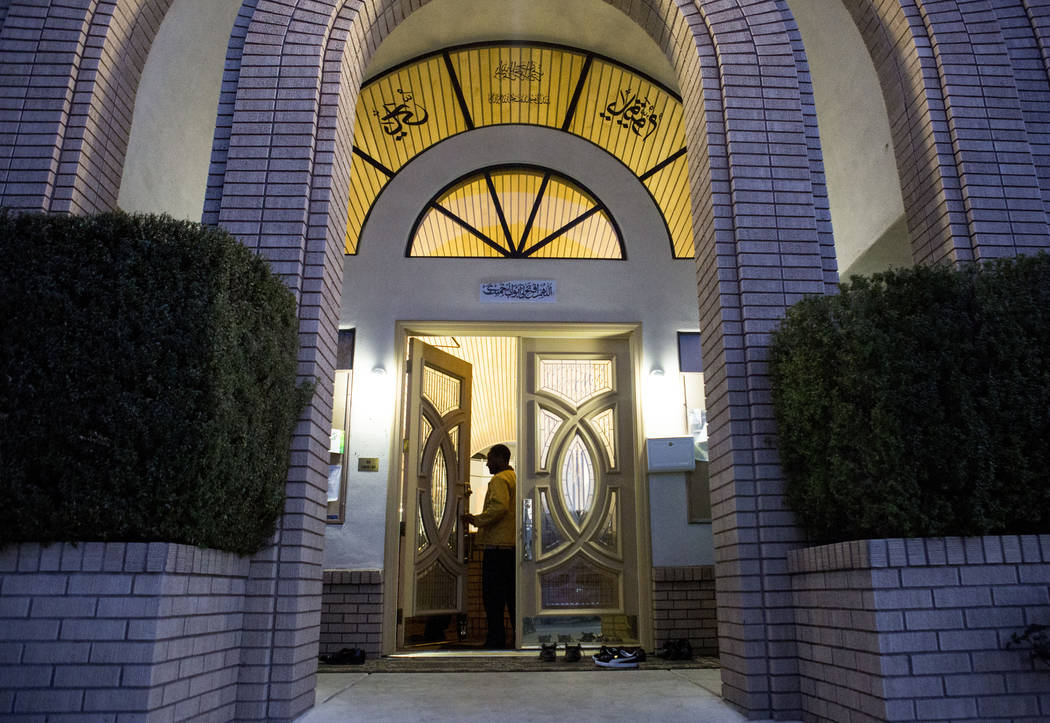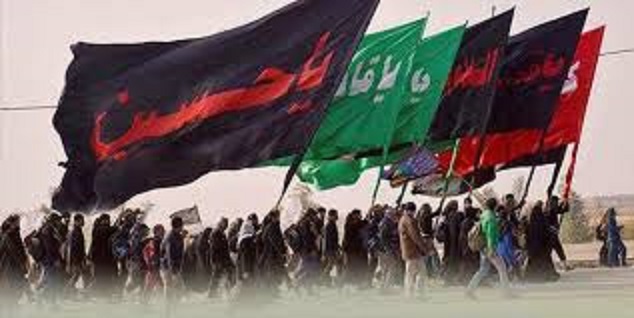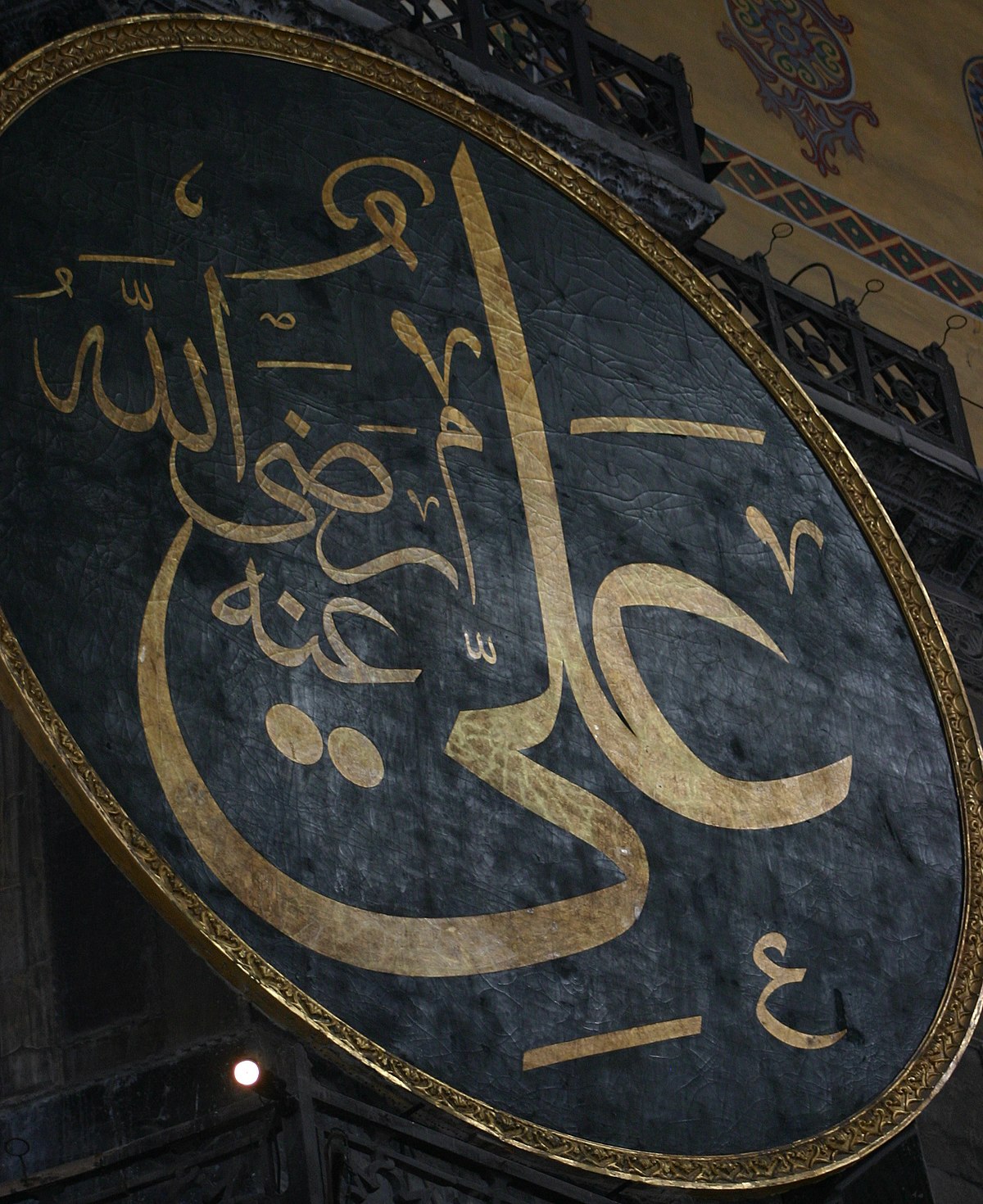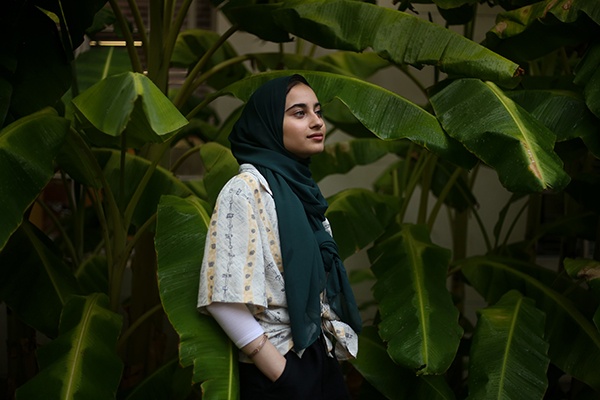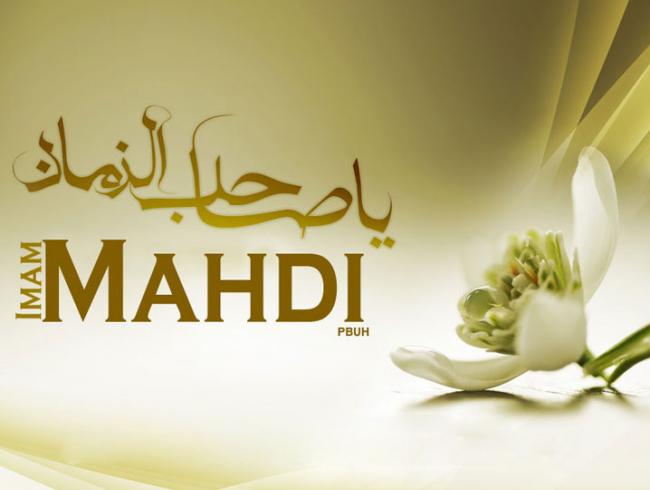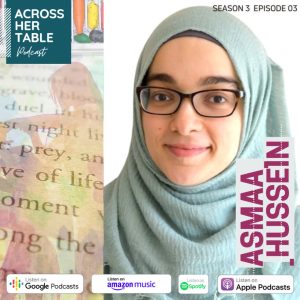According to Rahyafte (the missionaries and converts website):
An Exclusive Interview of a Revert to Islam, Ahmad Jones, from Ireland, by Zahra Salehi
Ahmad Jones, 27 years old, was born into a Catholic family in Ireland. The main motivating factor in choosing Islam was his experience reading the Qur’an. He said his Shahada in a small mosque in Dublin. Here Rahyafte team (related to Edoardo Agnelli Islamic Association) invites you on a special journey into the life of our brother Ahmad Jones…
I am Irish, from the republic of Ireland, I was born into a small family, my parents did not practice Christianity during my childhood. However I was baptised into the Roman Catholic Church and some years of my education was with Catholic schools (most schools are religious in the republic of Ireland). I studied Theology and Language in University for my undergraduate degree. I later completed a masters in Inter-Religious Studies, my research was focused on the influence of Ibn Taymiyya on Modern Islam.
We would like to know a little about your journey to Islam. What was your motivating factor in choosing Islam as your religion? And why did you choose the Shia school of thought?
The main motivating factor was my experience reading the Qur’an. I felt that it was a Divine Book, not the product of the human mind. Islamic monotheism was also logical and so was the idea of prophets being sent to all people to guide mankind.
I also noticed that Islam granted the family a very high and noble position and has explained our duties and rights in this regard very well.
The Shia school of thought, in essence, was sensible to me. From having read the historical sources as well as Nahjul Balaghah it was clear that Ali (AS) was the most suitable and worthy successor to the Prophet (PBUH).
The emphasis on the Prophet’s family was an important factor for me.
How did you get familiar with the Holy Quran? Did you read it for the first time just out of curiosity or did you feel lack of something inside or in your life?
It was curiosity but also part of a real search for truth about reality. The purpose of life and what it means to be human.
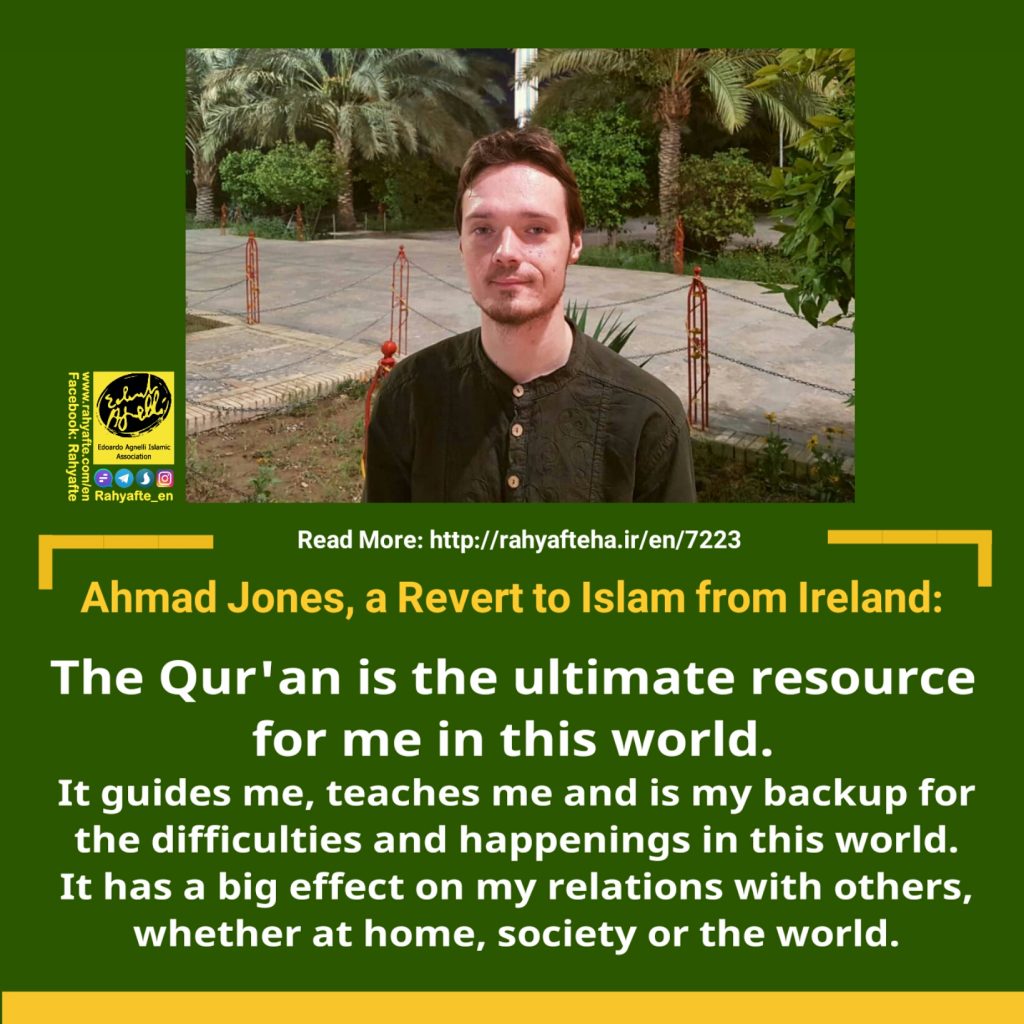
When you returned to Islam how was its effect on your family and friends?
They were mostly accepting, some at first thought it was a phase that I would go through. I can say I was fortunate, some converts are not fortunate and suffer due to their decision, sadly.
How do you define or articulate the influence of Qur’an on yourself, your personal and social life?
The Qur’an is the ultimate resource for me in this world. It guides me, teaches me and is my backup for the difficulties and happenings in this world. It has a big effect on my relations with others, whether at home, society or the world.
Do you think there is a connection between your internal and existential need and converting to Islam?
In so far as the human soul craves a relationship with a higher reality, Islam fulfilled this need. The need was the need to live according to my fitra (primordial nature).
Understanding Islam, which books have you studied about it, save the Holy Quran?
1. Najhul Balagha has been an important source of wisdom for me.
2. Martin Lings’ biography of the Prophet (PBUH) was a book I read several times.
3. Ibn Ata’ullah al-Iskandari’s ‘Sufi Aphorisms’.
4. Imam Khomeini’s ‘Guardianship of the Jurist’.
These are some of the books that have influenced me.
What did you think the first time you heard about the Ahlul-Bayt (AS)?
The first time I heard of the Ahul-Bayt really was when I read the account of Ahl-Al Kisa, the people of the cloak. I thought it was logical that those who lived with the Prophet (PBUH) and were raised by him would be best prepared to assume leadership of the community upon his passing, everything seemed to point to their high status.
Have you ever had time to study about Imam Hussain’s (AS) uprising? If so, what do you think?
I have read a little about Karbala and heard it narrated from our sources. To capture the full meaning of Imam Hussain’s (AS) martyrdom is difficult, it has had such an important place in world history.
The willingness to sacrifice oneself for a noble cause is perfectly embodied in Imam Hussain’s (AS) sacrifice and this such always be remembered by humanity.
In the West, Islam is generally accused of promoting terrorism, anti-human rights, issues or maltreatment of women. What is your response to these charges?
My response to these often repeated charges is that we must look to history to get a clearer picture of the reality of violence and religion. Each religion can be made culpable depending on how we define religion.
If we take the adherents to define the character of the religion (the functionalist definition of religion in sociology) then all religions are open to a charge of violence, if however we judge a religion according to its creed and ideals then we must recognise that religions, Islam included, tend toward peace, resolution and reconciliation.
We have examples of societies in which Muslims in some way practice these ideals of co-existence, civility and justice or at least had enshrined them in a legal system. This tells us a lot about Islam as a historical reality, that it is one-dimensional, it is not an evil force, it is human’s succeeding or failing to implement divine teachings. These divine teachings recognise the value of human life and ask us to refrain from violence, abuse and excess of all kinds. The charge that Islam promotes violence, maltreatment of women… has misunderstood what religion is from the beginning. The charge also suggests a blind confidence of the speaker in their own civilisation or co-religionists in these moral questions.
How do you distinguish Iran’s Islamic Revolution from world’s other revolutions?
The Islamic Revolution was the only revolution in modern history to be based on religion rather than secularism.
Unlike the majority of secular revolutions, the Islamic revolution did not commit genocide when it was successful.
It did not try to conform human beings to the ideals of a man-made utopia, but instead to return to the Islamic principles which had been at the heart of Iranian culture for 1400 years.
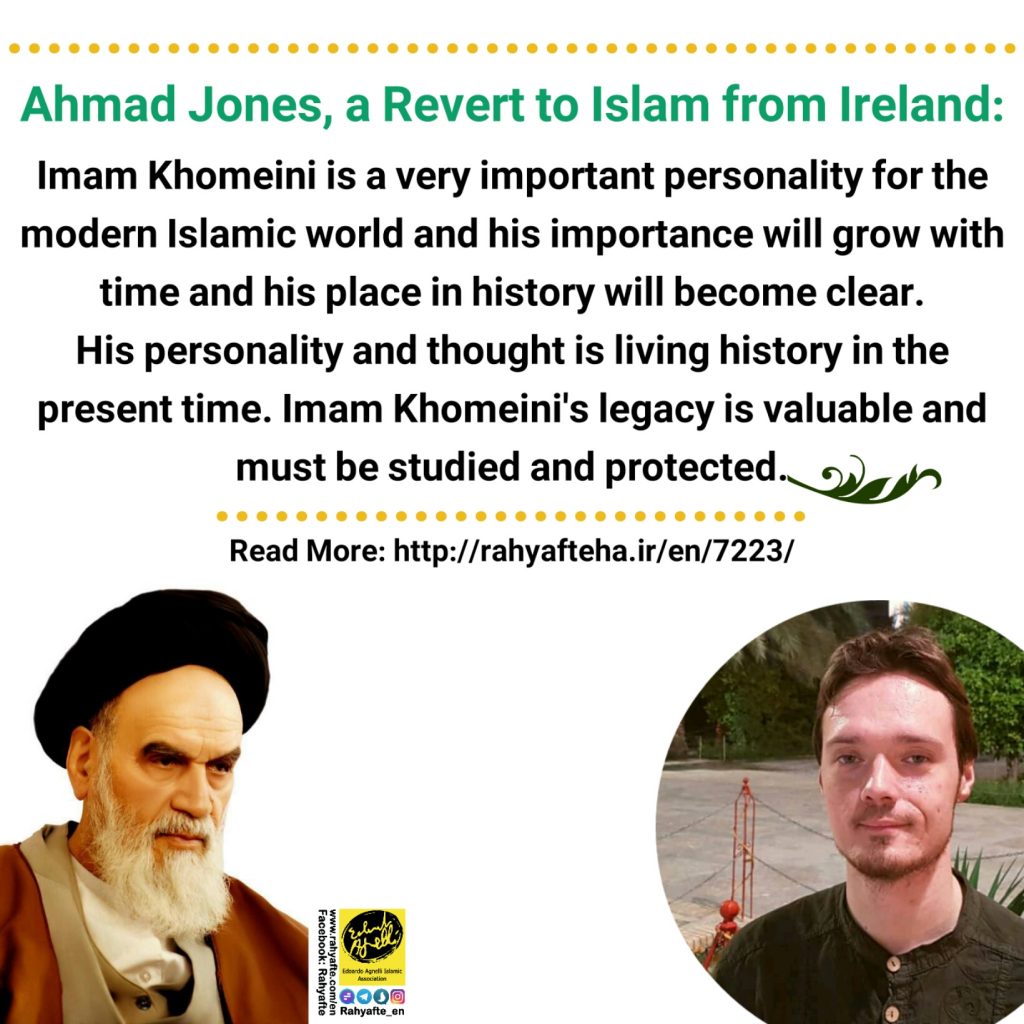
What is your view regarding Imam Khomeini (RA) as the founder of Islamic Revolution and the eminent personality of recent Islamic history?
Imam Khomeini is a very important personality for the modern Islamic world and his importance will grow with time and his place in history will become clear. Imam Khomeini’s personality and thought is living history in the present time, we live with the direct result of his teachings.
Imam Khomeini was an Ayatollah al-uzma which is the highest rank given to Shia Muslim scholars and so his authority in religious matters in indisputable. A marja (source of emulation) should be respected for his achievements in the religious sciences just as with the high ranking scholars in Al-Azhar university for Sunnis for example. Imam Khomeini’s influence was huge not just for Shia Muslims but the whole Muslim world. His courage and leadership were like an earthquake felt all across the Muslim world. Imam Khomeini’s legacy is valuable and must be studied and protected.
Are you happy with your decision of reverting to Islam today?
My soul feels peace and this is true happiness.
How is it possible to broadcast pure Islam worldwide effectively?
We need the help of the Ulema, they must be involved. We also need to be organised and capable of using the best technological mediums (though not all of them just because they are available). The best way of broadcasting Islam is in our behaviour however, it reaches audiences much quicker and is more attractive than any link or website or book.
What final message do you have for people who want to revert to Islam today? How would you describe Islam to them?
I would tell them to have a relationship with the Qur’an, that doesn’t mean get married to the Qur’an, because you must fall in love for this to happen. If it is not as close as a spouse in your heart at least give it the place of a friend.
Secondly speak with those with knowledge, the scholars of the religion, I mean the true scholars who follow an historical school of thought. Find them and ask them, they are the ones who can give answers.
Thank you very much for your attention. May Allah bless you and keep you strong and firm on this true path.
DUA: Allah! please accept this from us. You are All-Hearing and All-Knowing. You are The Most Forgiving. You are The Most Relenting and repeatedly Merciful. Allah! grant us The Taufiq to read all the 5 prayers with sincerity.
(Taken from To Be Earnest In Prayers By Amina Elahi)
■ Feel Free to Share the posts with your Friends…
■ You too can take part and help us in sharing the knowledge…
■ May Allah SWT reward you for conveying His Message To Mankind
